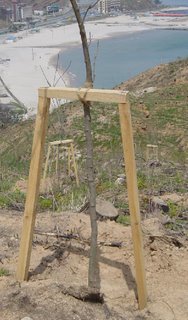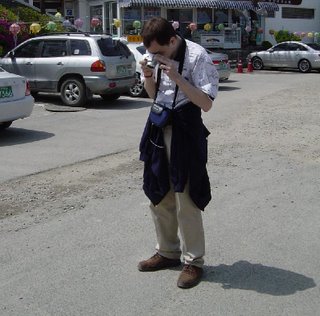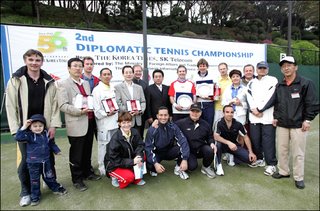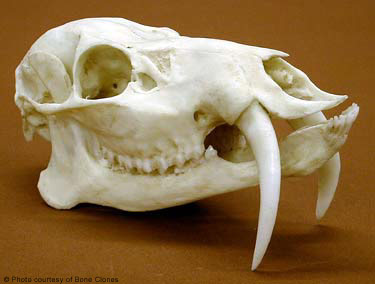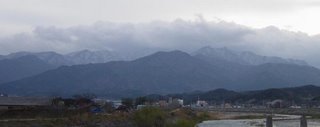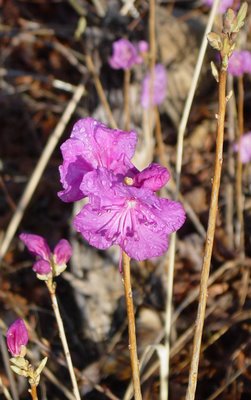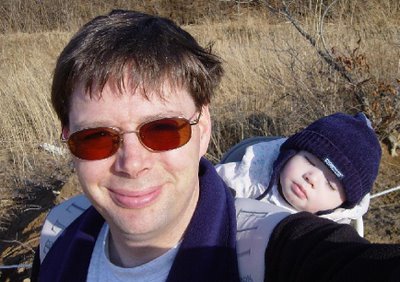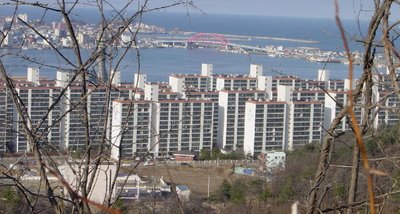I had the opportunity to meet two Seoul bloggers today (Saturday). We met at Naksan Beach Hotel and I tried to show them around the temple.
Nathan, the Seoul Hero, seems like a great guy and I had a good morning chatting and looking at how Naksan Temple has begun to rebuild after last year's fire. His friend, Joe, the Seoul man, was also a friendly sort and I enjoyed a good but too-short talk with the two of them.
Nathan has also blogged about his experience with many compliments to me - so thank you very much! Joe blooged about it as well, and, as well, had blogger problems putting many photos into one post. As it is the end of the month, I will link to his archive for April '06 and his three (!) posts should be at the top. (If anyone cares, I have a solution that dates back to the Picasa -Hello days: Post as many pics as you can in one post, set blogger to 'Edit html', copy the html into Wordpad or something, do that as often as you want, then paste the whole bundle into one post (again, set to 'Edit html') and delete all the previous posts used solely to upload pictures. Simple stuff, hey? Near the end of the month, as now, it's easier to link to the archive for that month.)
We spent Saturday morning wandering around Naksan Temple looking at what damage remains from last year's fire (Check the archives for April '05 for my several posts and eye witness accounts of the fire).
Here are Nathan and I at the giant Bodisatva of Mercy. Although the statue is fine, some of the stone around the base has heat fractures.
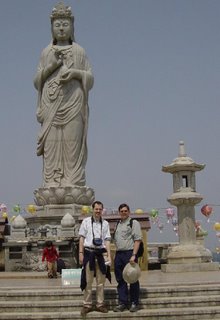
The temple just below the statue sustained some burns on it's floor.
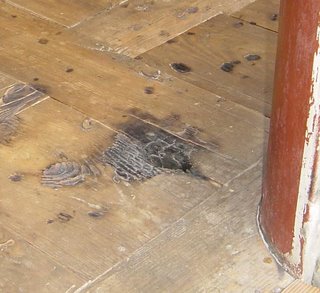 The ancient bell that had been at the temple for, well, a long time, melted in the fire. It had crystallized with age and use so it was not in use in recent times. Here is the bell used in early '05. I hadn't realized they had just left the bell in the wreckage of its platform.
The ancient bell that had been at the temple for, well, a long time, melted in the fire. It had crystallized with age and use so it was not in use in recent times. Here is the bell used in early '05. I hadn't realized they had just left the bell in the wreckage of its platform.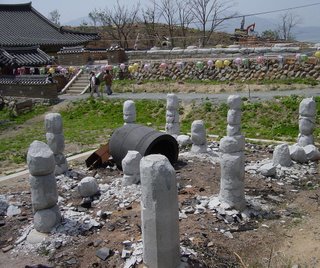
As perhaps a sign of the old and new, here is a burnt-out cherry tree and new temple resident rabbit.
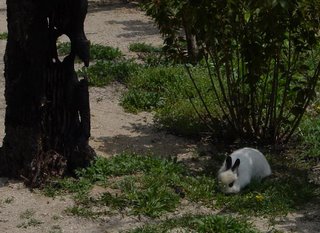
Blogger has trouble allowing me to place more than four or five photos in one post so this photos are continued in the next post.

